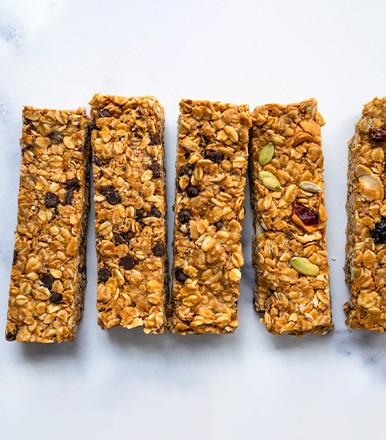Connection Between Diet & Mental Health
When we think about our mental health, we may not initially think about what we eat. However, research has shown that there is a strong connection between our diet and our mental health. What we eat can impact our mood, our ability to cope with stress, and even our risk for developing mental health disorders. In this article, HFM will explore the relationship between diet and mental health.
Gut-Brain Connection
You may have heard of the gut-brain connection. This refers to the communication that takes place between the brain and the digestive system. The two are intricately linked, and research has shown that what we eat can impact our mental health through this connection.
One way in which diet impacts mental health is through the gut microbiome. The gut microbiome is a collection of microorganisms that live in our digestive system. These microorganisms play a role in many bodily processes, including the immune system, metabolism, and even mood.
Research has shown that a diet high in fiber and plant-based foods can promote a healthy gut microbiome, which in turn can lead to better mental health outcomes. On the other hand, a diet high in processed foods and sugar can have a negative impact on the gut microbiome and increase the risk for mental health disorders.
Role of Nutrients
In addition to the gut microbiome, specific nutrients in our diet can impact our mental health. For example, omega-3 fatty acids have been shown to have a protective effect on the brain and can help reduce symptoms of depression and anxiety.
Foods that are high in omega-3 fatty acids include fatty fish, such as salmon and tuna, as well as chia seeds, flaxseeds, and walnuts. If you don't consume enough omega-3s in your diet, you may want to consider taking a supplement.
Other nutrients that have been shown to have a positive impact on mental health include magnesium, zinc, and B vitamins. These nutrients are found in a variety of foods, including leafy greens, nuts and seeds, whole grains, and legumes.
Impact of Inflammation
Inflammation is a natural response of the body to injury or infection. However, chronic inflammation can have a negative impact on our mental health. Research has shown that inflammation is linked to an increased risk for depression, anxiety, and other mental health disorders.
One way in which our diet can impact inflammation is through the consumption of inflammatory foods. These include processed meats, fried foods, and sugary drinks. On the other hand, a diet that is high in anti-inflammatory foods, such as fruits, vegetables, whole grains, and healthy fats, can help reduce inflammation and promote better mental health outcomes.
Importance of a Balanced Diet
While specific nutrients and foods can impact our mental health, it's important to remember that a balanced diet is key. Eating a variety of foods from all food groups can help ensure that we get the nutrients we need to support both our physical and mental health.
In addition, it's important to avoid restrictive diets, as they can have a negative impact on mental health. For example, research has shown that people who follow very low-calorie diets or restrictive diets, such as the ketogenic diet, may be at an increased risk for depression and anxiety.
Final Thoughts
The connection between diet and mental health is clear. What we eat can impact our mood, our ability to cope with stress, and our risk for developing mental health disorders. By focusing on a diet that is high in fiber, plant-based foods, and anti-inflammatory foods, and by ensuring that we get the nutrients we need, we can support both our physical and mental health.
It's important to remember that a healthy diet is just one aspect of supporting mental health. Other factors, such as exercise, sleep, and social support, also play an important role. However, by making small changes to our diet, we can take a positive step towards improving our mental health.
If you're looking to improve your diet for better mental health, there are a few key steps you can take. First, try to eat a variety of whole foods, including fruits, vegetables, whole grains, lean proteins, and healthy fats. Second, aim to limit your intake of processed foods, sugary drinks, and other inflammatory foods. Third, consider incorporating more plant-based foods into your diet, such as beans, lentils, and tofu, to promote a healthy gut microbiome.
If you're struggling with mental health issues, it's important to seek professional help. A mental health professional can provide you with the support and guidance you need to manage your symptoms and improve your overall well-being. In addition to seeking professional help, don't hesitate to reach out to friends and family for support.
Conclusion
The relationship between diet and mental health is complex, but research has shown that what we eat can have a significant impact on our mental well-being. By focusing on a healthy, balanced diet that includes a variety of whole foods, we can support our mental health and overall well-being. If you're struggling with mental health issues, remember that there is help available, and don't hesitate to reach out for support.
Check out Hello Fitness Magazine. There is never a wrong time to go on a fitness quest. Contact us and allow us to assist you in leading a better lifestyle. Follow us on Instagram. We share the best Health & Fitness related Articles for information based on healthy eating, health and fitness recommendations, health problems and their solutions, human body fitness, and much more.














